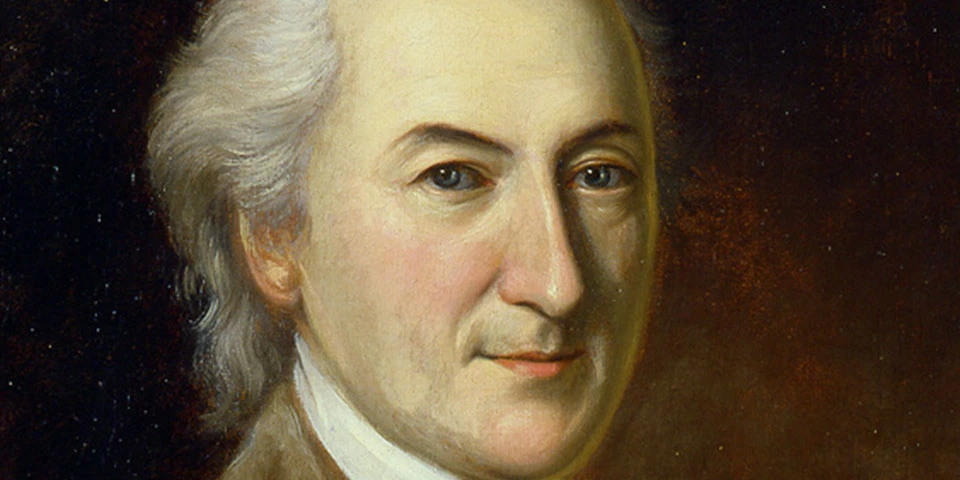Part of a series of articles titled The Constitutional Convention: A Day by Day Account for June 1787.
Article
June 2, 1787: Debate Continues on the National Executive

John Dickinson by Charles Willson Peale, 1782-1783. Independence National Historical Park
"Mr. Dickinson…informs me that they are all united in their objects, and he expects they will be equally united in the means of attaining them."
--Benjamin Rush to Richard Price, June 2, 1787
Saturday, June 2, 1787: The Convention Today
The Convention, meeting in the Committee of the Whole, continued debate on the national executive. James Wilson (PA) moved to divide the states into districts, and have the people (adult white males) in each district elect electors who would then elect the president. Hugh Williamson (NC) could not see the advantage in selecting electors over having the state legislatures elect the executive. Wilson's motion lost, 8 states to 2 (only Pennsylvania and Maryland voting for it). The Committee then agreed to have the executive chosen by the national legislature for a term of seven years. The delegates would later return to this issue of state legislatures or electors selecting a national executive.
The delegates discussed executive pay, removal from office, eligibility for a second term, and whether the executive should be one man or a committee. On the issue of executive pay, Benjamin Franklin (PA) produced a written speech proposing that the executive serve without pay. The Convention discarded this proposal without debate or vote. "It was treated with great respect, but rather for the author of it, than for any apparent conviction of its expediency or practicability," wrote James Madison (VA).
Synopsis
Delegates Today
The Convention, meeting in the Committee of the Whole, continued debate on the national executive. James Wilson (PA) moved to divide the states into districts, and have the people (adult white males) in each district elect electors who would then elect the president. Hugh Williamson (NC) could not see the advantage in selecting electors over having the state legislatures elect the executive. Wilson's motion lost, 8 states to 2 (only Pennsylvania and Maryland voting for it). The Committee then agreed to have the executive chosen by the national legislature for a term of seven years. The delegates would later return to this issue of state legislatures or electors selecting a national executive.
The delegates discussed executive pay, removal from office, eligibility for a second term, and whether the executive should be one man or a committee. On the issue of executive pay, Benjamin Franklin (PA) produced a written speech proposing that the executive serve without pay. The Convention discarded this proposal without debate or vote. "It was treated with great respect, but rather for the author of it, than for any apparent conviction of its expediency or practicability," wrote James Madison (VA).
Synopsis
- Agreed to selection of executive by by the legislature
- Agreed (8 – 2) on seven-year term for the executive
- Agreed (7 – 2 – 1) to a one term limit for the executive
- Defeated (9 – 1) Dickinson’s motion that the executive be subject to impeachment
- Postponed Franklin's motion that the executive should receive no salary
Delegates Today
- William Samuel Johnson (CT), Daniel of St. Thomas Jenifer (MD), and John Lansing, Jr. (NY) arrived and took their seats.
- General Washington "dined at the City Tavern with the Club and spent the evening at my own quarters."
- The day dawned cloudy with rain toward evening.
- Jonathon Penrose, Vice President of the Pennsylvania Society for Promoting the Abolition of Slavery, signed the Society's engrossed petition asking the Constitutional Convention to consider stopping the slave trade. The petition was not sent.
Last updated: July 20, 2019
